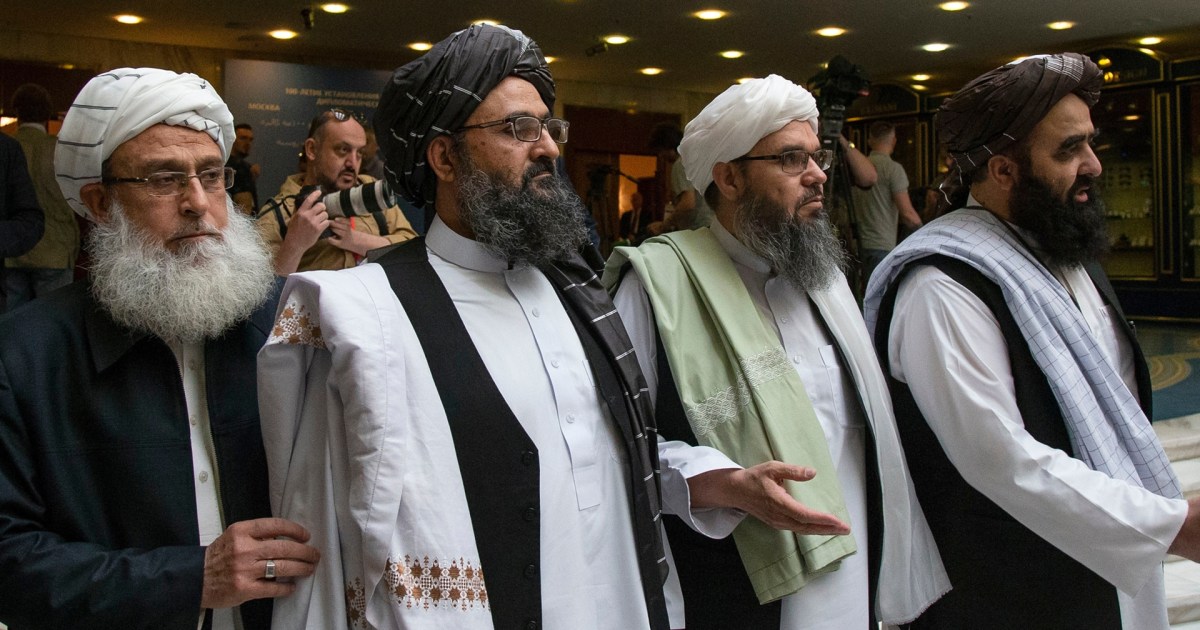Al-Jazeera correspondent in Doha stated that the delegations of the Afghan government and the Taliban movement agreed to form a joint committee consisting of 14 members, to prepare the agenda for the talks, at the conclusion of the sessions of the first day of the Afghan peace talks within the Doha track.
The correspondent added that the talks witnessed several sessions between the two delegations, and the heads of the two delegations expressed their optimism about reaching understandings to stop the ongoing escalation in the country.
The new round of negotiations between the two parties was launched in the Qatari capital yesterday, Saturday, and discusses files and issues described as crucial.
A member of the Taliban's political bureau, Suhail Shaheen, told Al Jazeera that the movement is not looking for access to power through military force, and that it is looking positively at the current round of Doha talks.
Shaheen indicated that the government rejected a previous offer to reduce escalation, stressing that what distinguishes the current round of talks is the presence of a high-level government delegation.
For his part, Abdullah Abdullah, head of the Afghan Reconciliation Committee and head of the government delegation, said that achieving peace in the country requires flexibility on both sides, adding that the ground is now suitable for peace in Afghanistan.
Abdullah added during the opening session that negotiations must be accelerated to reach a solution that satisfies everyone, and that there is no military solution to the problem of Afghanistan, which necessitates efforts to reach a political solution.
The Doha talks coincide with the continuation of the field escalation between the Afghan forces and the Taliban, as the movement said that it had taken control over the past two months of 194 districts in Afghanistan, five of which were recaptured by Afghan forces.
The Afghan Ministry of Defense announced the killing of 284 Taliban militants in military operations carried out in a number of provinces, most notably Balkh, Kandahar, Helmand, Takhar, Kabul, Nangarhar, Ghazni and Khost during the past 24 hours.
The ministry said it defused 15 explosive devices.
Government forces are continuing their military campaign to restore the city of Spin Boldak and the strategic Chaman crossing on the border with Pakistan in the southern province of Kandahar, while the Taliban broadcast a video clip of the Chaman border crossing.
Yesterday, Saturday, Pakistan temporarily reopened the crossing for several hours, so that some stranded Afghans can return to their hometowns.
Pakistani Interior Minister Sheikh Rashid Ahmed said that the Pakistani security services are monitoring what is happening near the Chaman crossing inside Afghanistan, and that they will take the necessary steps to deal with any emergency.
Pakistan has continued to close its land border with Afghanistan since July 6, in order to prevent the spread of the Corona virus, as announced.
However, local sources in Pakistan did not rule out that the closure was for fear of new waves of Afghan asylum in Pakistan, due to the deteriorating security situation.
The Pakistani security authorities have raised the state of alert along the border with Afghanistan.

